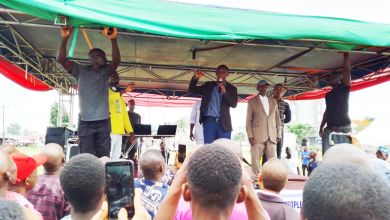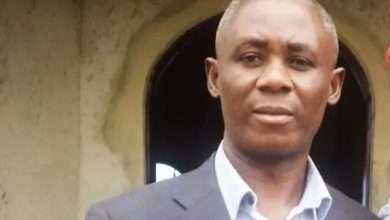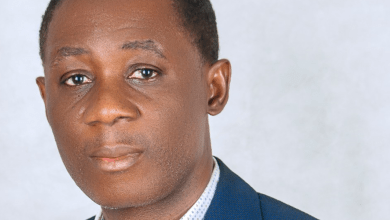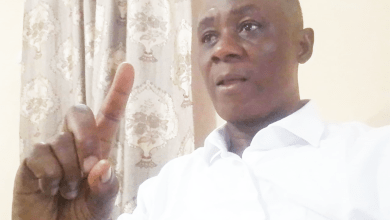Why Oil Production in Ogoniland is Still Not Possible
Shortly after the November 10 hangings of 1995, Shell Oil Company setup an Ogoni Re-entry department to help the company break the Ogoni resistance and pave way for the resumption of oil mining in the area. That was Shell’s immediate response to the plight of the Ogoni people after the brutal killings of 9 leaders by the Nigerian government in 1995. The government and Shell had thought that Saro-Wiwa’s killing will frustrate the Ogoni and ease the resumption of oil mining in Ogoniland. That was not to be as the people have consistently and persistently held on to the oil till date except in cases where agents of Shell have been reported to be stealing the Ogoni oil.
After Shell came Belema oil Producing (Nigeria). Belema Oil got the endorsement of chiefs and political office holders who are all on government payroll. Huge expenditure were spent on media advertising to justify the need for Ogonis to accept Belema Oil but the so-called leaders could not connect with the local people for a synergy in favour of Belema Oil and the project is already failing.
There could be other cases of backend lobbying seeking to gain entry into Ogoniland but one factual outcome is that the people have resolved to get justice before oil resumption can commence.
Justice for the Ogoni will involve, clean-up, pay up for the damage, prosecute all those who have been involved in rights violations in Ogoniland and restore the rights of the Ogoni to decent living and freedom to determine her own future. These are minimal demands that will usher in peace, prosperity and happiness for all peoples who live in Ogoni and Nigeria by extension.
The Ogoni Clean-up
The Ogoni case has shown how Nigeria as a country can be reckless with the lives of her citizens. After denying any wrongdoing and insisting that the government and oil company which operated in Ogoniland for over 50years did their best to maintain high standards, a scientific report by the United Nations Environmental Programme(UNEP) has shown how Nigeria shamelessly and carelessly polluted Ogoniland far beyond our imaginations. A UNEP report published in 2011 showed Benzene level to be 900percent higher that acceptable standards.
Over four years later, the Nigerian government and Shell, the oil company responsible for the pollution continue to play lip service to the issue and are rather playing rhetorics.
On assumption of office, President Buhari pledged to speed up the process and implement the report. But a strong feeling of disillusionment pervades Ogoniland following government inactions after the statement. The health conditions in Ogoni is getting worse with increasing mortality rates. The president is well aware of the dangers posed by the non-implementation of the report yet, no meaningful action to get the process started has been seen.
Compensation
The issue of compensating the Ogoni for the desecration of their land and destroying their means of livelihood is as critically important as the restoration of the land itself. As at 1990, the Ogoni people demanded U.S $4Billion as compensation for the destruction of the land. No remediation can be fair without the issue of compensation. But this can be achieved through negotiation involving an assessment of the assets of Shell in Ogoniland and ceding them to the Ogoni people. For any company that will resume oil production in Ogoniland, these assets will represent the Ogoni investment in the new deal.
Prosecute Human Right Violators
The Nigerian government has been silent on the wave of Ogoni persecution since 1993, sanctioning the use of violence to suppress the Ogoni uprising and send fears down the spine of other Niger Delta communities who will want to follow the Ogoni non-violent model. If Ogoni will ever have to trust and believe in Nigeria, the new government must prove that Ogoni people can be protected in Nigeria. We want to see Ogoni killers like Paul Okuntimo and Dauda Musa Komo brought to justice. We want to see corrupt judges who will avail themselves to an unjust process, like those who presided over the tribunal that sentenced the Ogoni nine in 1995, brought to justice. Unfortunately, the judge who sentenced Saro-Wiwa in a trial that was globally condemned as a sham, Justice Ibrahim Auta has been elevated and well rewarded by the Nigerian authorities. Ogoni cannot believe in a Nigeria that is silent in the face of gross injustice committed against her people. Nigeria must be seen to uphold justice and fairness. The country must work fo real change – not just a change in leadership but real change to uphold her integrity and human rights records.
Ogoni Rights to Decent Living
In the “Ogoni Bill of Rights” OBR, a fair demand for justice is made by the Ogoni people. The OBR notifies the Nigerian government that the Ogoni people wish to control their own affairs. We want to live in our own state with the Nigeria federation and not lumped up with some 20 others while our resources are used to fund unproductive states dominated by the major ethnic groups including Hausa-Fulani, Yoruba and Ibos.
The Ogoni people want to take responsibility for their environment, development of social infrastructures like education, health care, roads, and social security. These are achievable only within a state controlled by the Ogoni people. While Nigeria is balkanized into states that are dominated by just three major ethnic groups, the minorities whose resources power the Nigerian state are oppressed and live without the fundamental right to decent living. Nigeria hopes that someday, the Ogoni oil will be available to supply funding for the Nigerian military whose only memory in Ogoni are the tragedy of its occupation between 1993 and 1999. Nigeria does not care about the Ogoni and her dwindling future – a people whose land generate more revenue than 20 Nigerian states yet, have no state of their own. What the Nigerian government is doing to the Ogoni is nothing short of modern day slavery and the country cannot hope that the Ogoni agitation will ever be subdued as long as these injustices continue.
We have watched the Nigerian government’s consistent inclination towards Ogoni oppression. The Ogoni people on their part will be expected to hold on to the visions of the founding fathers particularly the ideals of Hon. T.N. Paul Birabi (Father of Modern Ogoni) and Ken Saro-Wiwa (founder of MOSOP). Both of them have been excluded from all national honors in Nigeria. T.N. Paul Birabi established over 50 schools in Ogoniland between 1949 and 1953 when he died. He was on the delegation to discuss Nigeia’s independence in London in 1953 and led African students movements campaigning for independence during his studies in the U.K. Nigeria has honored thieves with national awards but will not recognize this great mind and gift. I see no other reason for the exclusion of Birabi from Nigeria’s honour’s list other that the fact that he is an Ogoni.
For the records, the Ogoni people have set themselves on the road to reclaim their rights and assert their God-given freedom. It is a choice that must be sustained for the future of our people. The struggle must continue until victory is attained. Ogoni must be free.
Author:
Fegalo Nsuke
Publicity Secretary
The Movement for the Survival of the Ogoni People (MOSOP)
Port Harcourt, Nigeria.




